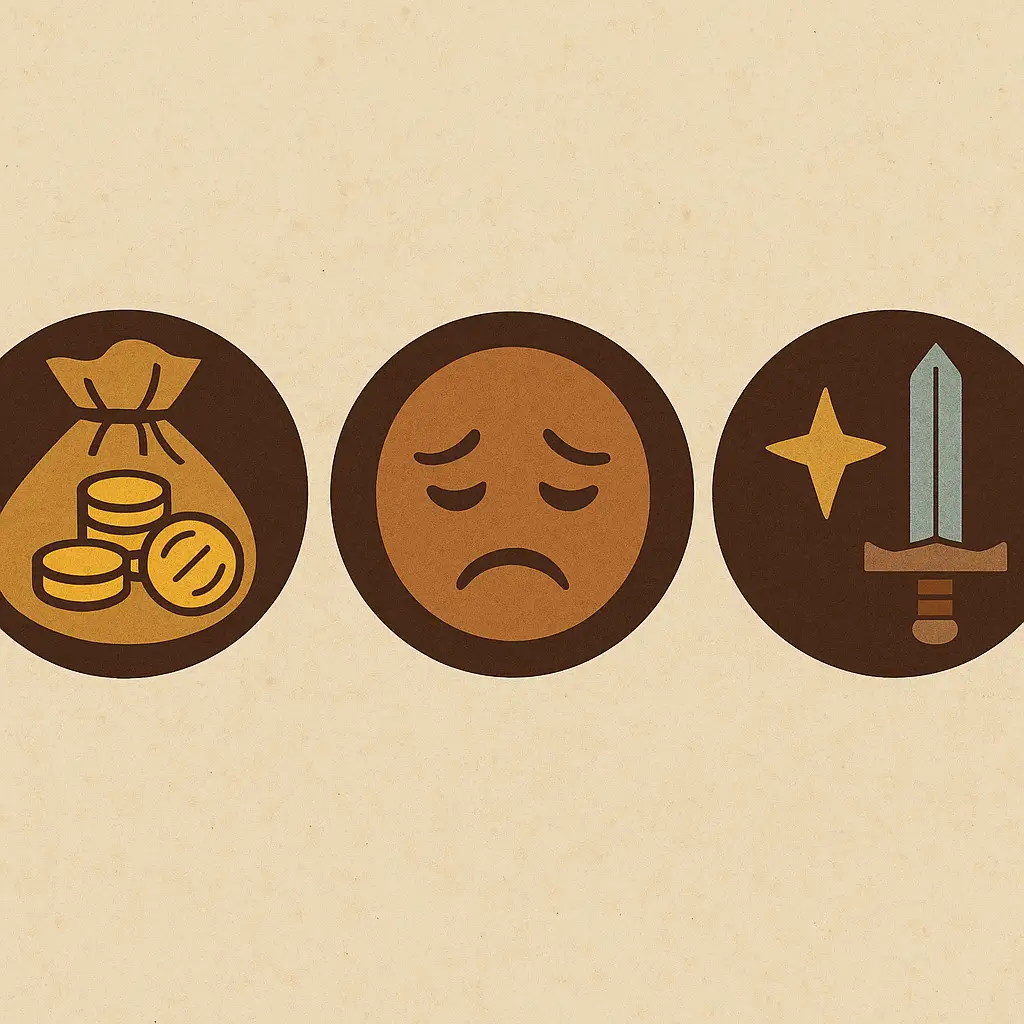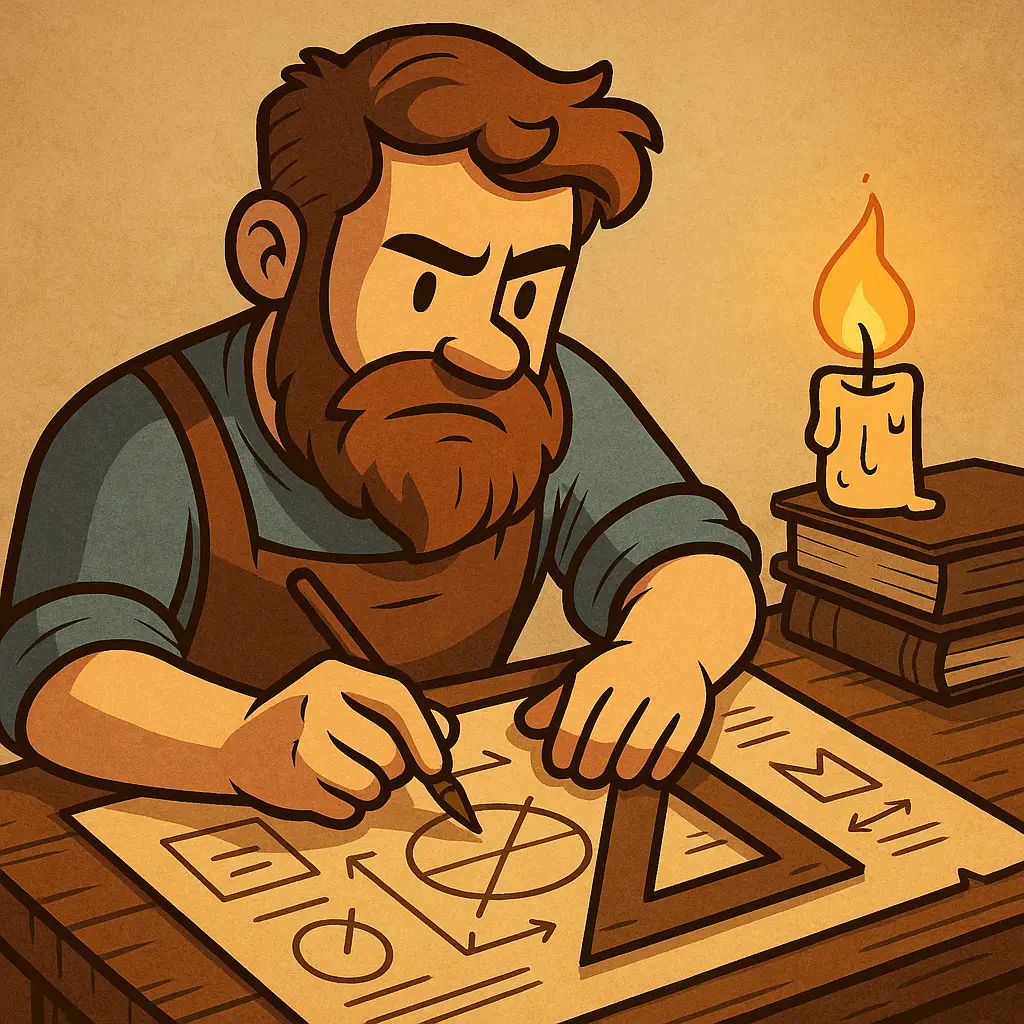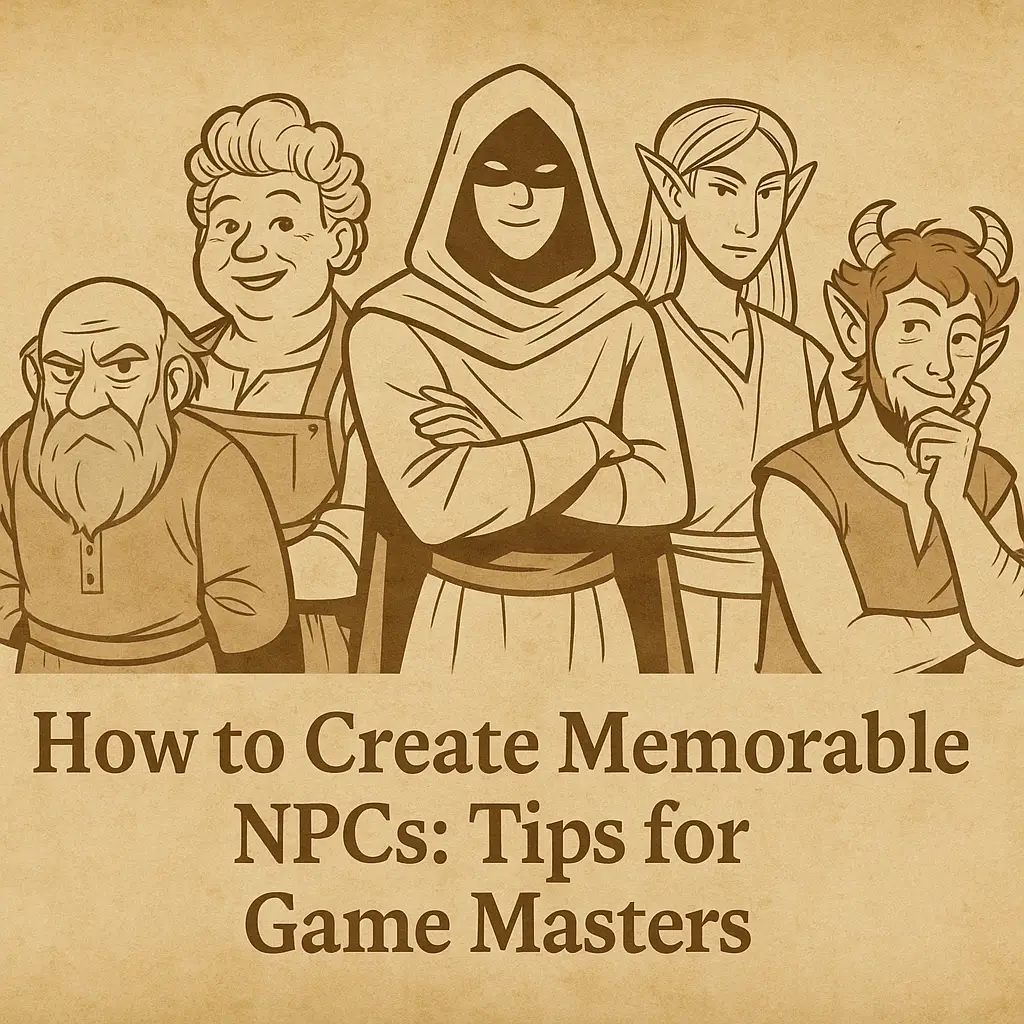Helping players and GMs align character goals with campaign design for richer narratives
Your party slays a necromancer. A grateful town offers gold, a letter of recommendation from a duchess, and a hint about the villain’s childhood trauma.
Which reward do they care about?
That answer tells you everything.
Because while D&D (and most TTRPGs) technically revolve around leveling up, what really drives the story is what drives the characters.
Are they doing it for the money?
For redemption?
For fame?
For revenge?
For the snacks?
Today on RPGInquisitor, we explore how to identify and leverage your party’s real motivations—so you can design a campaign that hits emotionally as well as tactically.
🧠 The Three Core Motivators
Most characters (and real people, honestly) are driven by a blend of three major forces:
🪙 Gold – External Gain
Wealth. Items. Power. Favor. Reputation.
These characters are here to win something—usually tangible. They measure success by loot, gear, renown, or strategic advantage.
😔 Guilt – Internal Debt
Regret. Redemption. Secrets. Promises.
These characters are running from something, or trying to make something right. Their choices are guided by backstory, loss, or fear of repeating mistakes.
🏆 Glory – Legacy
Fame. Justice. Validation. Pride.
These characters want to be remembered. They want to matter. They take risks, make speeches, and challenge the big bad to single combat with 3 HP.
🎲 Why Motivation Matters
Knowing what motivates your characters helps:
- Players make consistent, interesting decisions
- GMs craft satisfying quests, dilemmas, and rewards
- The party bond or clash in meaningful ways
Motivation gives direction. It also gives drama.
A mercenary rogue and a vengeance-fueled paladin can do the same mission for wildly different reasons—and that’s the fun.
🎭 Identifying Party Motivations (for Players)
Ask yourself:
- “Why am I really adventuring?”
- “What do I hope to gain or change?”
- “What does my character fear the most?”
- “What would tempt me to walk away?”
You don’t need a grand prophecy. Just an anchor.
Gold says: “I’ll save your village—for the right price.”
Guilt says: “I’ve failed one town before. I won’t do it again.”
Glory says: “I’ll do it. Not for gold. Not for guilt. For history.”
One dungeon. Three completely different tones.
🧩 Aligning Motivation With Character Class
While any class can pursue any motive, some archetypes naturally tilt in certain directions:
Typical “Gold” Motivators:
- Rogues
- Mercenary Fighters
- Arcane Scholars
- Greedy Warlocks
They’re pragmatic, self-interested, or goal-oriented.
Typical “Guilt” Motivators:
- Fallen Paladins
- Haunted Rangers
- Clerics with dark pasts
- Reformed criminals
They want to be better—or prove they aren’t who they used to be.
Typical “Glory” Motivators:
- Bards (obviously)
- Knights
- Hot-headed Sorcerers
- Chosen Ones™
They chase legacy, recognition, or cosmic meaning.
Again: play against type if you like! A bard driven by shame can be a joy to explore.
🧱 For GMs: How to Use Player Motivation in the Campaign
Once you know what drives your players, use that fuel.
For Gold-driven Characters:
- Include rivals who beat them to the treasure
- Let them auction loot or haggle over payment
- Add magical gear with a story attached
- Offer favor with powerful patrons or mercantile guilds
- Give them choices between immediate payoff and long-term gain
For Guilt-driven Characters:
- Introduce people from their past (or echoes of it)
- Present moral dilemmas that feel personal
- Let them save others from fates they once failed to prevent
- Offer redemption at a cost
- Have someone believe in them more than they believe in themselves
For Glory-driven Characters:
- Put them in the spotlight—and see what they do with it
- Let NPCs idolize or misinterpret them
- Give them signature moves, style moments, or legendary rumors
- Challenge their ego with consequences
- Offer fame that might outpace truth
“They sing songs about you now. But they don’t know what really happened in the crypt, do they?”
Ouch. Delicious.
🎤 Motivation in Action: Sample Encounter Variants
The Setup:
The party finds a cursed blade in the hands of a dying knight. He begs them not to let it fall into anyone’s hands.
Gold Reaction:
“I hear cursed weapons fetch triple at the black market in Vardun.”
– Let this lead to buyers, thieves, and double-crosses.
Guilt Reaction:
“I knew this knight. He saved me once. I won’t let his last wish be ignored.”
– Let this open a quest to destroy or purify the blade.
Glory Reaction:
“This blade is dangerous—but in the right hands, it could save lives. Mine, for example.”
– Let this become a personal arc, with increasing risks or fame tied to wielding it.
Same encounter. Three stories.
🧩 Building Group Motivation Without Sacrificing Individuality
Characters don’t all need the same drive.
But the campaign does need a shared thread. Try asking:
- What unites us?
- What’s the bigger goal we all care about?
- What would make us split?
This turns solo motives into party-level purpose.
“I’m here for the money. She’s here for revenge. But we both want to stop the cult.”
Perfect.
🗺 Motivational Plot Hooks by Type
Gold Hooks:
- A noble’s vault is unguarded—but cursed
- A merchant guild is offering a massive bounty for a stolen shipment
- An ancient ruin is untouched, but trapped and politically sensitive
Guilt Hooks:
- A plague spreading in a town someone once fled from
- An old letter never delivered, and a family still waiting
- A foe from their past returns—stronger and crueler
Glory Hooks:
- A public challenge: defeat the champion or be forgotten
- A prophecy possibly about them—or someone else
- A rival hero stealing credit and turning public opinion
Every story needs tension. Motivation creates direction for that tension.
💡 Final Tips
- Let motivations shift. Characters grow. Glory becomes guilt. Guilt becomes gold. Let the arc arc.
- Encourage players to share their motives out loud—especially during downtime scenes.
- Use rewards to test or tempt them. “You can have the sword… but the child’s soul is bound to it.”
- Don’t punish players for their goals. Just challenge them.
- Let payoff feel personal. “This wasn’t just another quest. This was your moment.”
🧠 Final Thoughts: The Why Behind the Sword
In the end, characters don’t swing swords or cast spells just because.
They do it because:
- They want to be rich.
- They want to be better.
- They want to be known.
And when you design for those motives, your campaign becomes something more than just XP and monsters.
It becomes a story.
A personal one.


